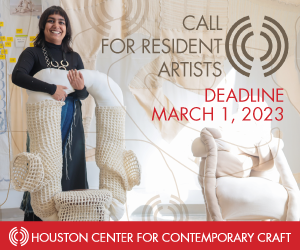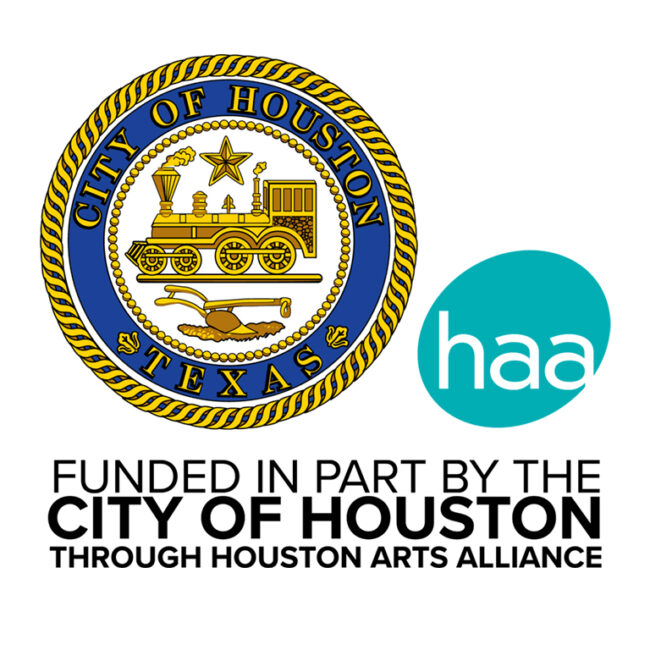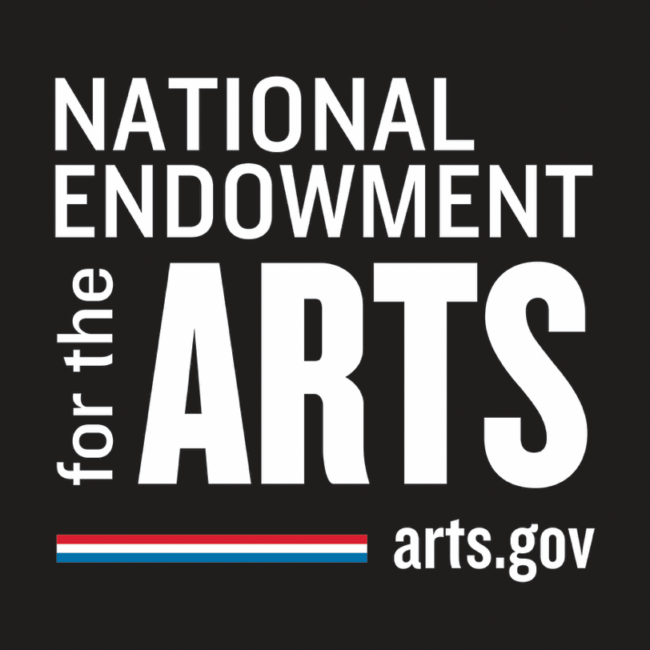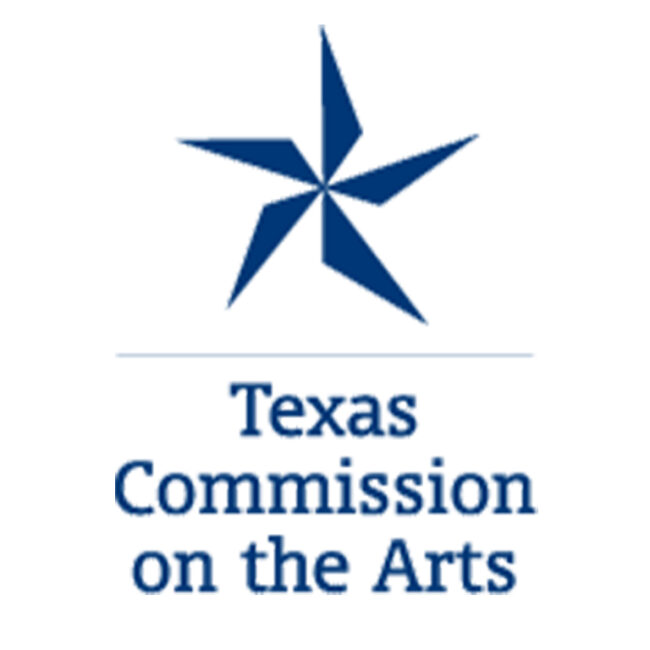
Makeshift Memorials, Small Revolutions

October 11 - March 09,2025
From the Blaffer: "KADIST San Francisco is pleased to announce the exhibition Makeshift Memorials, Small Revolutions, a two-venue exhibition presented in partnership with the Blaffer Art Museum in Houston, opening at KADIST on October 4 and remaining on view through February 15, 2025. The exhibition traces the magnified impacts of the COVID-19 pandemic upon artist communities across the world, highlighting the cyclical nature of improvised, responsive, yet sustained systems of mutual aid, information sharing, and embodied knowledge throughout a prolonged moment of global crisis. The exhibition at KADIST San Francisco is co-curated by Lindsay Albert (Program Manager, KADIST San Francisco), Joseph del Pesco (International Director, KADIST), and Jo-ey Tang (Director, KADIST San Francisco). The years 2020-2024 began with the onset of the COVID-19 global pandemic, which continues to expose systemic inequities that disproportionately affect historically marginalized communities. Yet the pandemic also brought to the fore ongoing and interrelated crises, including the ongoing HIV/AIDS epidemic and the many societal and carceral forces that drive Black and Brown grief. Artists in the exhibition assume the role of informal narrators or archivists for mimetic memory, working against power structures that continue to sanction personal isolation, cultural amnesia, and planetary extinction. Presenting almost 60 artworks from over 40 artists, with many making their West Coast debut at KADIST San Francisco, Makeshift Memorials, Small Revolutions highlights an international conversation between artists across continents and a wide array of Indigenous, tribal, and Aboriginal groups. The exhibition draws from Judith Butler’s notion of intertwinement, as she writes in her 2022 book What World Is This?: A Pandemic Phenomenology of a “collective effort to find or forge the best form of ‘interdependency’ as one that most clearly embodies the ideals of radical equality.” The exhibition is conceived as a body—social, personal, political—and a site in which artworks are brought together in dense proximity through salon-style installations. This is anchored by the works of Vuntut Gwich'in First Nation artist Jeneen Frei Njootli, whose work focuses on reclaiming Indigenous sovereignty; London and Beirut-based Joe Namy, who considers Arab American civil liberty, media representation, and the politics of sound; New York artist Jamel Robinson with works that explore the historic and present grief surrounding the Black experience in America, and Carmen Winant, a leading photographic and installation artist who expands the public dialogue on the representation of women in Western society. Collectively these artists present makeshift memorials of community-building toward Indigenous resistance, reproductive labor and care work, and demands for an abolitionist future. In addition, 20 video works spanning over four and a half hours in duration are intertwined temporally through the exhibition. This display of video work conceives of time as simultaneously dilating and contracting, as wrought by the pandemic lockdown and a sense of social arrhythmia. Life cycles and the rehearsal of the past are brought forward through acts of memorializing, similar to the cyclical nature of social movements and revolutions. The works in the exhibitions draw predominantly from the KADIST collection of over 2,200 artworks representing 1,400 artists, reflecting a plurality of voices and fostering global conversations through collaboration. KADIST thoughtfully adds nearly 100 artworks per year to its collection. Makeshift Memorials, Small Revolutions is a diary of experiences and a ‘protest against forgetting.’ It reflects upon what’s occurred internationally throughout the last four years, while also holding space for new political horizons. Participating artists include Indira Allegra, Brook Andrew, Edgardo Aragón, Carmen Argote, Yoko Asakai, Saif Azzuz, Kent Chan, Tony Cokes, Moyra Davey, Jim Denomie, Jeneen Frei Njootli, Rahima Gambo, Juliana Góngora, Harry Gould Harvey IV, Claudia Gutiérrez Marfull, Gordon Hookey, Pao Houa Her, Every Ocean Hughes, Kite and Corey Stover, Steffani Jemison, Subash Thebe Limbu, Tessa Mars, Joe Namy, Eduardo Navarro, Antonio Obá, Juan Obando, Nour Ouayda, Prabhakar Pachpute, Antonio Pichillá, Michael Rakowitz, Jamel Robinson, Sherrill Roland, Asha Sheshadri, Rania Stephan, Kenneth Tam, Moses Tan, Mona Vatamanu and Florin Tudor, Kaylene Whiskey, Carmen Winant Artworks on view in San Francisco and Houston A throughline connects San Francisco and Houston with contributions by artists whose works span both venues. The works consider individual and collective movements and their bodily, social, and historical dimensions. New York-based multidisciplinary artist and writer Indira Allegra will produce a site-specific work, Blaffer Sessions, in collaboration with Houston-based musicians, transforming the museum stairwell into a broadcast station, and turning various architectural features into instruments: a theremin, a harp, and a rattle. Through live sound sessions, Allegra and their collaborators weave the senses of touch and hearing into collective intimacy, memory, and grief. At KADIST San Francisco, Allegra will create a site-specific pair of participatory sculptural works, placed at the entrance and the exit of the galleries. Visitors are invited to select a cord from the entrance that they feel can hold a prayer or the energy of a difficult experience with them as they move through the exhibition space. Upon exiting, the visitors will tie the material onto the wall to symbolically bind the experience to the past so that a transformation process can begin. Also on view is the video After My Death/A Mutable Decision (2022), which follows the artist’s dance within a shaft of sunlight in an empty studio, culminating in a staccato of grief expressions. Internationally renowned artist Tony Cokes probes the relationships between power structures, racist ideologies, and image politics, using pop music as a foil and drawing history’s lesson for the present day. KADIST San Francisco presents Evil.80.Empathy? (2020), a video that animates words by Tina Campt, Black feminist theorist of visual culture and contemporary art, Saidiya Hartman, scholar and writer of Black life, and British filmmaker John Akomfrah, soundtracked by the UK producer and DJ Caspa. At the Blaffer Art Museum, Some Munich Moments 1937-1972 (2022), a multi-channel video work that juxtaposes historical and contemporary image, sound, and text fragments, explores Munich’s complex history. Addressing the transformative potential of the self and the collective, Buenos Aires-based Eduardo Navarro’s Breathspace (2020), comprises drawings and a handmade animation created during the COVID-19 pandemic lockdown as a time-portal of past and future visions. Experienced from the sidewalk in front of KADIST San Francisco is an animation featuring a large humanoid head that rhythmically syncs with the expansion and contraction of breath cycles. At the Blaffer Art Museum, visitors are greeted by 100 drawings that are a result of daily practice, forming a cosmic universe of vessels, human and animal bodies, as a meditation on our collective breath. Fascinated by biological perceptions, after attending an end-of-life doula training in 2018, New York and Stockholm-based Every Ocean Hughes’ practice pivoted to a direct engagement with the rituals, practices, and materials of death and dying, and the culture and history of LGBTQIA+ kinship and care. The video, One Big Bag (2021), was written, staged, and directed by the artist, based on interviews with end-of-life doulas. Taking the form of a monologue from the doula’s perspective, it acts as an instructional manual for the conditions of death and the usage of materials that comprise an end-of-life doula’s toolbox, such as cotton swabs, water bowls, ceremonial bells, snacks, and painkillers Advocating for an inclusive approach to death and rituals, Every Ocean Hughes critically addresses individual and collective agency and the inequalities of the death care industry, including the economic and bureaucratic burden compounded by racism, transphobia, and homophobia. Public Programs Makeshift Memorials, Small Revolutions public programs continue the desire for knowledge-sharing and the potential of collectivity and collaboration on the local and global level. The pandemic exposed systemic inequities disproportionately affecting marginalized groups. Extending this reckoning across arts and cultural institutions, many workers, especially frontline employees, were furloughed, while others were tasked to envision new forms of engagement to welcome new publics to their online and hybrid programs. The programs in San Francisco are titled Open Bodies and extend across the city in collaboration with arts and cultural organizations. The series is conceived as a collective body that tends to various organs, perceptive faculties, and phenomenologies: sound/listening, body/movement, and language. Acting as ears, limbs, and tongue to the exhibition body, Open Bodies reflects on the transformation of physical and social bodies through sound, dance/choreography, and the reverberation of familial and collective language. Open Ears, in collaboration with The Lab On view November 7–9 and 14–16, 2024, 12-5 pm Location: The Lab, 2948 16th St, San Francisco, CA 94103 Open Ears considers the social and political dimensions of sound as pathways of resilience, through the toppling of monuments and rematriation of looted museum objects. Renowned Iraqi-American artist Michael Rakowitz’s Behemoth II (2024) (co-commissioned by KADIST and San Francisco Art Fair), an inflatable sculpture in the form of the Ulysses S. Grant statue in Golden Gate Park that was toppled in 2020, invoking other redacted monuments shrouded in black tarps globally, is juxtaposed with musical artist Asha Sheshadri’s video Portmanteau (2021). The work takes the form of a virtual museum tour during the pandemic of empty museums that housed looted objects, set to a soundtrack of aural distortion. Recalling the sonic impact of toppling monuments, Behemoth II is set to a constant cycle of inflating and deflating. It returns to San Francisco, after presentations at the San Francisco Art Fair, Seattle Art Fair, and the Blaffer Art Museum in 2024. Open Arms, in collaboration with Weaving Spirits Festival and CounterPulse Thursday, February 6, 2025, Time TBD Location: CounterPulse, 80 Turk St, San Francisco, CA 94102 A transformation of physical and social bodies through dance/choreography reflecting on Indigenous sovereignty, the sculptural work of Jeneen Frei Njootli (2SQ Vuntut Gwitchin, Czech, and Dutch), casino chips fall out of you, broken hearts and baggies too (2021) will temporarily move from KADIST San Francisco’s exhibition to CounterPulse. The program will inspire new choreographic works by two-spirit dancers in collaboration with Weaving Spirits, a festival of two-spirit performances. Njootli’s sculpture reckons with histories of displacement and the ongoing struggles that Indigenous peoples face. The work calls into question the cultural practices, traditions, and Indigenous rights that are still being inhibited or denied by continuing assimilation policies. Open Tongue, in collaboration with McSweeney’s Quarterly February 15, 2025, Time TBD Location: KADIST San Francisco, 3295 20th St, San Francisco, CA 94110 Reverberations of familial and collective language through writing for the new issue of McSweeney’s Quarterly, accompanied by a launch event. KADIST San Francisco 3295 20th Street, San Francisco, CA 94110 sanfrancisco@kadist.org Open Wednesday–Saturday, 12-5 pm, and is free to visit. About the Collaboration Makeshift Memorials, Small Revolutions at KADIST San Francisco is co-curated by Lindsay Albert (Program Manager, KADIST San Francisco), Joseph del Pesco (International Director, KADIST), and Jo-ey Tang (Director, KADIST San Francisco). Makeshift Memorials, Small Revolutions at the Blaffer Art Museum is co-organized by Erika Mei Chua Holum (Cynthia Woods Mitchell Associate Curator at the Blaffer Art Museum and co-curator of the 2024 Texas Biennial), Lindsay Albert (Program Manager, KADIST San Francisco), and Jo-ey Tang (Director, KADIST San Francisco). The co-institutional partnership and curatorial research for Makeshift Memorials, Small Revolutions was initiated by Joseph del Pesco (International Director, KADIST) and Steven Maticijo (Former Jane Dale Owen Director & Chief Curator at the Blaffer Art Museum). Makeshift Memorials, Small Revolutions at KADIST San Francisco is co-curated by Lindsay Albert (Program Manager, KADIST San Francisco), Joseph del Pesco (International Director, KADIST), and Jo-ey Tang (Director, KADIST San Francisco). About the Venues KADIST is a non-profit contemporary art organization that believes artists make an important contribution to a progressive society through their artwork, which often addresses key issues relevant to the present day. Dedicated to exhibiting the work of artists—from more than one hundred countries—represented in its collection, KADIST affirms contemporary art’s role within social discourse, and facilitates new connections across cultures. Its local hubs in Paris and San Francisco organize exhibitions, physical and online programs, and host residencies. KADIST stays apprised of developments in contemporary art via a global advisor network, and develops collaborations internationally, including with leading museums, fostering vibrant conversations about contemporary art and society. Founded in 1973, the Blaffer Art Museum endeavors to further the understanding of contemporary art through exhibitions, publications, and public programs. As the gateway between the University of Houston’s Central campus and the City of Houston, Blaffer Art Museum is a catalyst for creative innovation, experimentation, and scholarship. Its exhibitions and programs are free and open to the public, create community through dialogue and participation, and inspire an appreciation for the visual arts as a vital force in shaping contemporary culture. The Cynthia Woods Mitchell Center for the Arts at the University of Houston is the interdisciplinary arts resource for students, faculty and staff, and the general public. In order to bridge disciplines, stimulate dialogue and support the creation of innovative work, the Mitchell Center supports a variety of programs such as lectures and workshops, performances and exhibitions, scholarships, residencies and visiting artists."
Reception: October 11, 2024 | 6-8 pm
Blaffer Art Museum
120 University of Houston Fine Arts Building
Houston, TX 77204-4018
Get Directions









